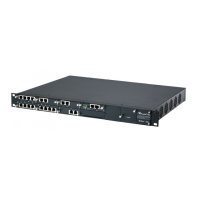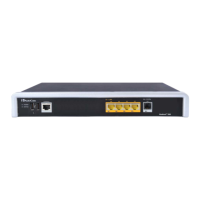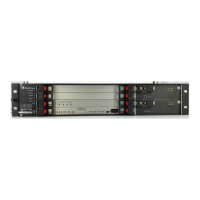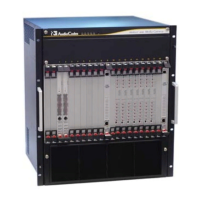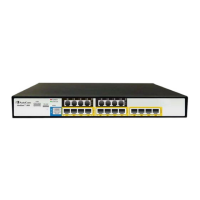Version 7.2 409 Mediant 1000B Gateway & E-SBC
User's Manual 19. Coders and Profiles
Parameter Description
device does not interfere, but maintains an independent timer for
each leg to monitor the session. If the session is not refreshed on
time, the device disconnects the call.
[2] Not Supported = The device does not allow a session timer
with this SIP entity.
[3] Supported = The device enables the session timer with this
SIP entity. If the incoming SIP message does not include any
session timers, the device adds the session timer information to
the sent message. You can configure the value of the Session-
Expires and Min-SE headers, using the SBCSessionExpires and
SBCMinSE parameters, respectively.
Remote Update Support
sbc-rmt-update-supp
[IpProfile_SBCRemoteUpdate
Support]
Defines whether the SIP UPDATE message is supported by the SIP
entity associated with the IP Profile.
[0] Not Supported = UPDATE message is not supported.
[1] Supported Only After Connect = UPDATE message is
supported only after the call is connected.
[2] Supported = (Default) UPDATE message is supported during
call setup and after call establishment.
Remote re-INVITE
sbc-rmt-re-invite-supp
[IpProfile_SBCRemoteReinvit
eSupport]
Defines whether the destination UA of the re-INVITE request
supports re-INVITE messages and if so, whether it supports re-
INVITE with or without SDP.
[0] Not Supported = re-INVITE is not supported and the device
does not forward re-INVITE requests. The device sends a SIP
response to the re-INVITE request, which can either be a success
or a failure, depending on whether the device can bridge the
media between the endpoints.
[1] Supported only with SDP = re-INVITE is supported, but only
with SDP. If the incoming re-INVITE arrives without SDP, the
device creates an SDP and adds it to the outgoing re-INVITE.
[2] Supported = (Default) re-INVITE is supported with or without
SDP.
Remote Delayed Offer
Support
sbc-rmt-delayed-offer
[IpProfile_SBCRemoteDelaye
dOfferSupport]
Defines whether the remote endpoint supports delayed offer (i.e.,
initial INVITEs without an SDP offer).
[0] Not Supported = Initial INVITE requests without SDP are not
supported.
[1] Supported = (Default) Initial INVITE requests without SDP are
supported.
Note: For the parameter to function, you need to assign extension
coders to the IP Profile of the SIP entity that does not support
delayed offer (using the IpProfile_SBCExtensionCodersGroupName
parameter).
Remote Representation Mode
sbc-rmt-rprsntation
[IpProfile_SBCRemoteRepres
entationMode]
Enables interworking SIP in-dialog, Contact and Record-Route
headers between SIP entities. The parameter defines the device's
handling of in-dialog, Contact and Record-Route headers for
messages sent to the SIP entity associated with the IP Profile.
[-1] According to Operation Mode = (Default) Depends on the
setting of the 'Operation Mode' parameter in the IP Group or
SRDs table:
B2BUA: Device operates as if the parameter is set to

